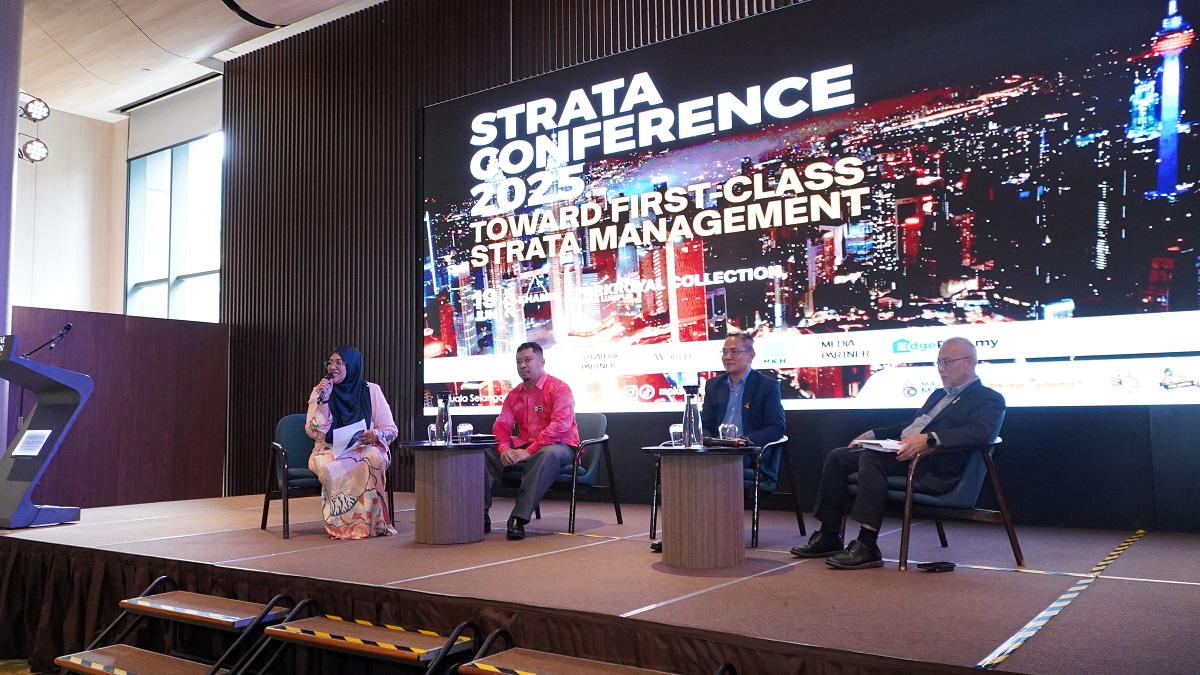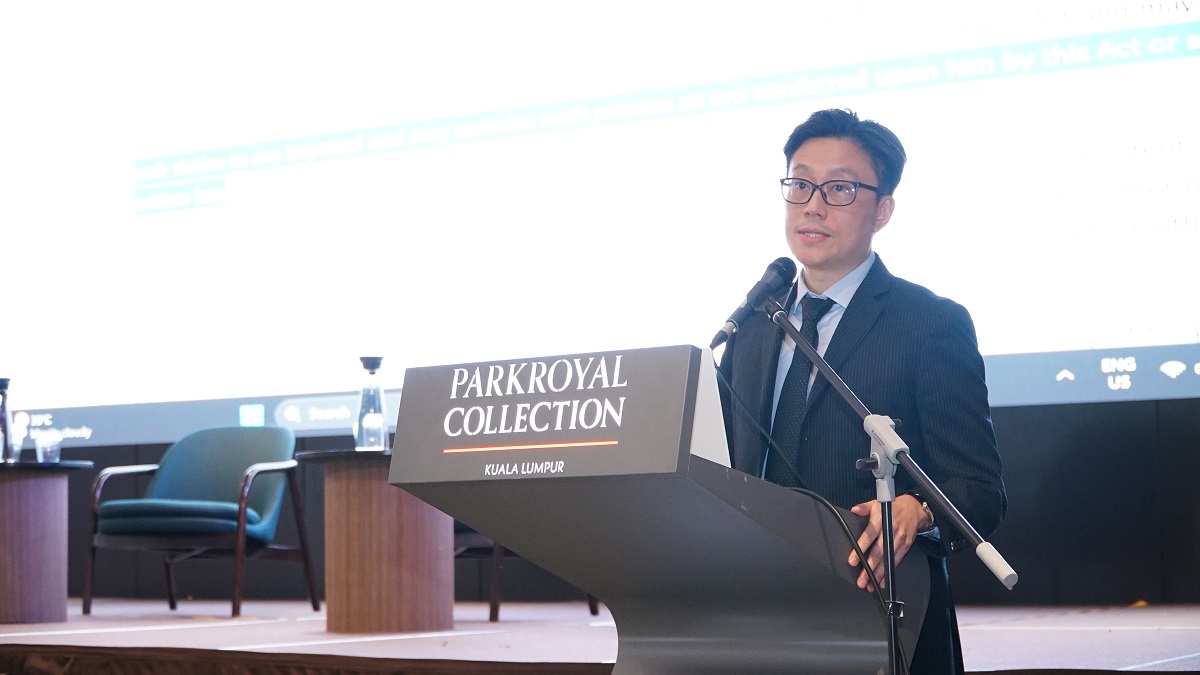Strata Conference 2025: Clear policies, strong enforcement, joint commitment needed towards first-class strata management

- There's a lack of synchronisation between new regulations and existing practices, and there is a need to refine the current strata management law, a KPKT official conceded.
KUALA LUMPUR (June 23): To achieve a first-class standard of strata management, our country needs clear and consistent policies, strong implementation, and commitment from both the government and industry players, an expert said at the “Strata Conference 2025: Towards First-Class Strata Management” event.
Hosted by the Kuala Selangor Municipal Council (MPKS) here last Thursday (June 19), the event was supported by EdgeProp Malaysia as media partner. The sessions included a forum titled “Strata in Sync: Federal, State and Industry on the Same Page,” where speakers from the federal government, local authorities, and industry discussed how to synchronise strata management across the national and state levels.
“As urban development has evolved, we’re seeing more high-rise housing nowadays, which leads to multiple challenges in strata management,” Housing and Local Government Ministry (KPKT) Strata Management Division director Mohd Syaifulrizal Abu Bakar said.
He pointed out that one of the common challenges is that residents refuse to pay maintenance fees. This is because they complain that their properties are defective, and they often receive slow responses to fix the issues.
He admitted there's a lack of synchronisation between new regulations and existing practices, and there is a need to refine the current strata management law. Hence, the Strata Management Act 2013 (SMA 2013) is undergoing an update, with discussions kickstarted in October last year.
“Looking forward, the SMA 2013 amendment aims to strengthen the responsibilities of all stakeholders, ensuring property owners aren't negatively affected,” Syaifulrizal said.
Law and practice not fully aligned
Selangor Housing and Property Board (LPHS) Operations Development Division, Building Management Unit senior assistant director Nor Haninzan Sahib echoed this, emphasising that consistency in policy and execution between the government and the industry is still not fully aligned.
“I feel industry players and government cooperation isn't truly in sync, even if there appears to be some engagement.
“For instance, the strata management initiative between local authorities and industry players has not been adequately discussed, and the current system isn't yet strong enough to ensure the results that the local government aspires to,” he said.
Citing the success of Singapore Housing & Development Board (HDB)’s model, he said that the success of strata management in that country is achieved through comprehensive alignment with government policies and industry action.
“Our strata management should be powered by a robust policy enforcement system to ensure all industry players comply with all established regulations or laws,” he stressed.
Read also
Many owners still waiting for strata titles, some up to 20 years
Minimise compliance requirements for greater efficiency
Meanwhile, Malaysian Institute of Property and Facility Managers (MIPFM) president PMgr Sr Hj Ishak Ismail said that one of the issues that industry players are facing revolves around compliance.
“There's simply too much compliance. If we could minimise compliance requirements, that would be a significant step,” he said.
Ishak Ismail stated that when compliance standards are set, management bodies spend an excessive amount of time trying to meet them. This prevents them from effectively delivering services and fostering a responsible community.
The second major issue is the system itself.
“The current systems used by joint management bodies and management corporations are often self-sourced.
“While these might be adequate for answering queries and handling basic tasks like e-invoicing, they fall short when it comes to sales and service tax (SST) compliance issues that involve government agencies.
“These self-sourced systems are often not adequate for proper filing nor efficient for extracting and documenting information,” he elaborated.
He proposed that the authorities could introduce a centralised system through a top-down approach to enhance property management efficiency.
Knowing the law crucial for effective property management

In his presentation of “Strata Disputes: Fixing the Cracks before they Break You”, Chee Hoe & Associates litigation partner Lai Chee Hoe highlighted the importance of understanding the law in property management.
Addressing the oft-misunderstood maximum 15-month interval for holding annual general meetings (AGM), Lai explained that if the last AGM was convened on Oct 30, 2024, the next AGM must be held latest by Dec 30, 2025, not 2026.
“The AGM must be held once a year. The 15-month interval applies between one AGM and the next, but [the provision is invalidated] if the AGM is held late. Therefore, if your AGM is in October 2024, you won't be able to utilise a 15-month interval to extend it into 2026,” Lai elaborated.
According to Lai, many property managers waste time trying to figure this out instead of just following the clear guidelines.
Does Malaysia have what it takes to become a Blue Zone, marked by health and longevity? Download a copy of EdgeProp’s Blueprint for Wellness to check out townships that are paving the path towards that.
Never miss out
Sign up to get breaking news, unique insights, event invites and more from EdgeProp.
Latest publications
Malaysia's Most
Loved Property App
The only property app you need. More than 200,000 sale/rent listings and daily property news.
